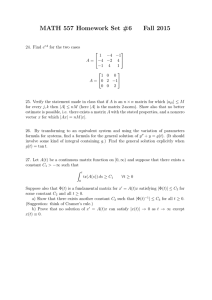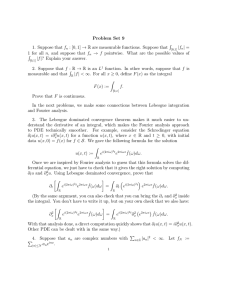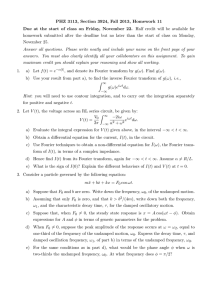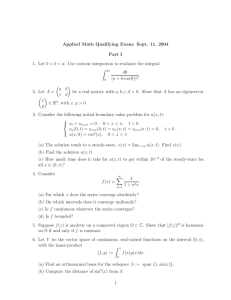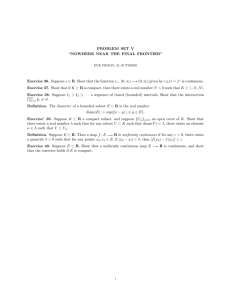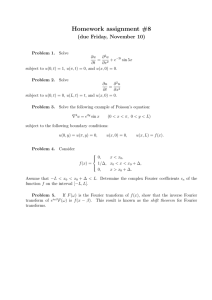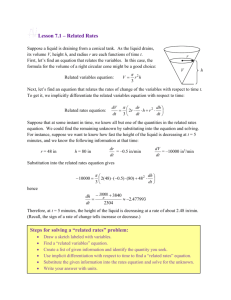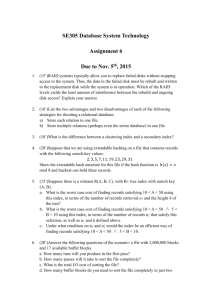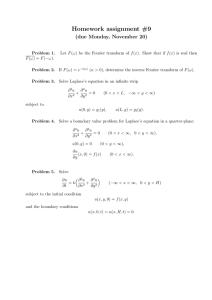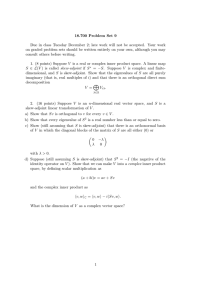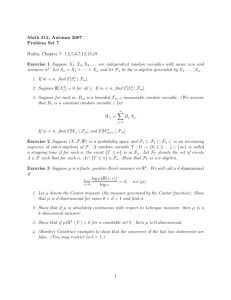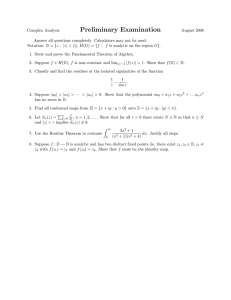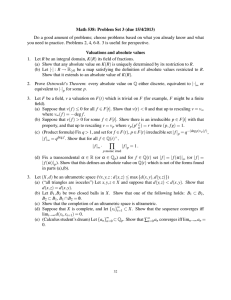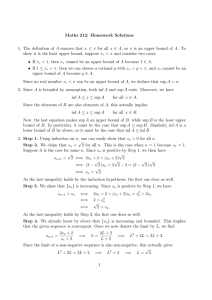18.103, SPRING 2004 PRACTICE FINAL
advertisement
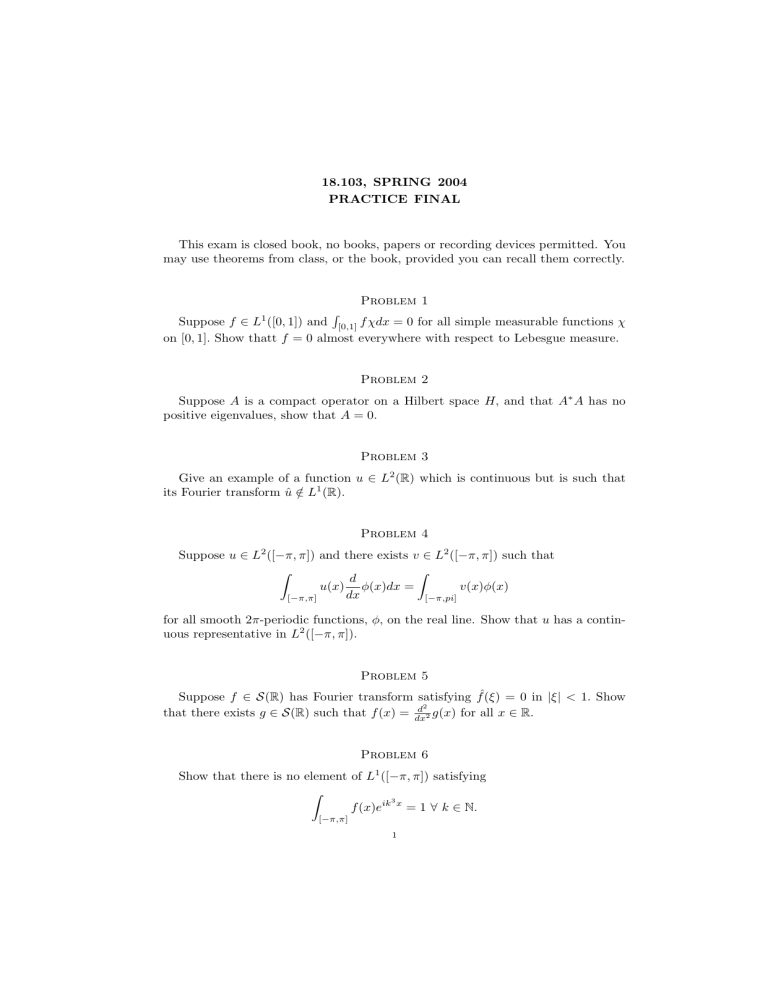
18.103, SPRING 2004 PRACTICE FINAL This exam is closed book, no books, papers or recording devices permitted. You may use theorems from class, or the book, provided you can recall them correctly. Problem 1 Suppose f ∈ L1 ([0, 1]) and [0,1] f χdx = 0 for all simple measurable functions χ on [0, 1]. Show thatt f = 0 almost everywhere with respect to Lebesgue measure. R Problem 2 Suppose A is a compact operator on a Hilbert space H, and that A∗ A has no positive eigenvalues, show that A = 0. Problem 3 Give an example of a function u ∈ L2 (R) which is continuous but is such that its Fourier transform û ∈ / L1 (R). Problem 4 Suppose u ∈ L2 ([−π, π]) and there exists v ∈ L2 ([−π, π]) such that Z Z d v(x)φ(x) u(x) φ(x)dx = dx [−π,π] [−π,pi] for all smooth 2π-periodic functions, φ, on the real line. Show that u has a continuous representative in L2 ([−π, π]). Problem 5 Suppose f ∈ S(R) has Fourier transform satisfying fˆ(ξ) = 0 in |ξ| < 1. Show d2 that there exists g ∈ S(R) such that f (x) = dx 2 g(x) for all x ∈ R. Problem 6 Show that there is no element of L1 ([−π, π]) satisfying Z 3 f (x)eik x = 1 ∀ k ∈ N. [−π,π] 1 2 18.103, SPRING 2004 PRACTICE FINAL Problem 7 Suppose f ∈ L2 ([−π, π])) had Fourier coefficients cj , j ∈ Z satisfying X k ∈ Zk|ck | < ∞. Show that there exists a function g ∈ L2 ([−π, π]) such that Z Z d g(x)φ(x)dx = f (x) φ(x) + cos(x)φ(x) dx dx [−π,pi] [−π,pi] for all smooth 2π-periodic functions φ on the real line. Problem 8 If f ∈ C([0, 1]), show that Z (1) 1 f (t)u(t)dt, x ∈ [0, 1], (Au)(x) = x defines a compact operator A : L2 ([0, 1]) −→ L2 ([0, 1]). Problem 9 Show that there is an infinite orthonormal sequence uj ∈ L2 (R) with each element satifying ubj = cj uj , cj ∈ C.
